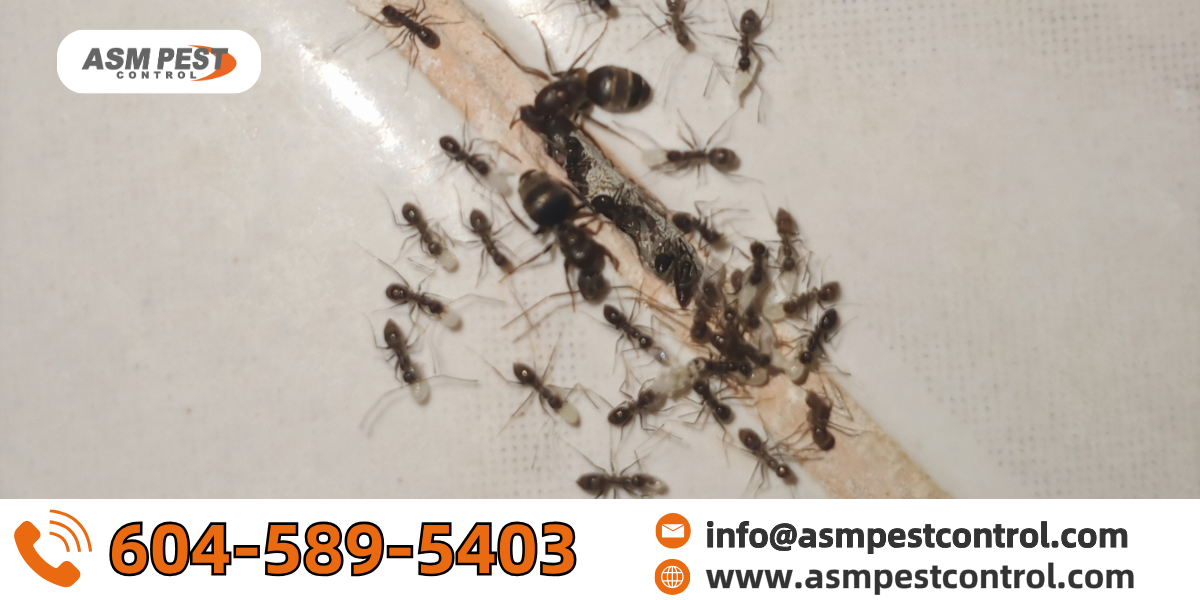Ants are also among the busiest insects in existence; they are always constructing nests, finding food, and ensuring their colony is well structured. One can easily think that these small workers never rest. However, this brings us to a very fascinating and unusual question: Do ants sleep?
And the short answer is yes, ants do sleep, at least they do not do it as we define sleep. Unlike human beings and other mammal species, ants possess a very distinct and very efficient rest cycle, enabling them to remain continuously productive in their colonies. This blog will examine the way ants sleep, what is so peculiar about ant rest behaviours, and how they differ between workers, like worker ants and the queens..
Do Ants Sleep or Just Rest?
Ants seem to be in motion. This is because they undergo a certain kind of sleeping pattern called polyphasic sleep, whereby they rest in many small intervals, as human beings sleep in continuous long sleep times. As per the researchers, worker ants undergo approximately 250 micro-naps a day, lasting almost a minute each. All these sleeping sessions amount to close to five hours of sleep in 24 hours, during which ants sleep without hindering the labor of the colony.
Such a system of distributed resting makes sure that the colony is never resting completely. As one batch of ants sleeps, another is awake and at work. It is this system of rotational sleep that allows ant colonies to operate with such a ceaseless rate of efficiency.
What Counts as Sleep for an Ant?
The biggest ant control new westminster problem is when answering the question of whether ants sleep is one of them. is stating the meaning of sleep in insects. Unlike human beings, the ants have no eyelids and no indication of sleeping, such as snoring or sitting down.
When the ants go into rest, the antennae become to droop a little bit down and they respond to much less stimuli, even when touched by another ant. Researchers also observed the dramatic decrease in the movement of the mandible and antenna, and sometimes no movement in the limbs. These indicators indicate not that the ant is inactive but that it is actually in a restorative state, as is deep sleep in mammals.
When Do Ants Sleep?
Ants don’t follow a day-night schedule the way humans do. Instead, their sleep timing is influenced by species type, role in the colony, and environmental conditions. Unlike humans, who sleep for long blocks of time, ants control port coquitlam take short, irregular naps throughout the day and night. This allows them to remain alert and responsive while still getting enough rest to function effectively.
Most worker ants exhibit polyphasic sleep, as discussed earlier. But some species, especially those in extreme climates, have adapted to monophasic sleep cycles, where they rest for longer stretches at once, often during the hottest part of the day or the coldest parts of the night. This adaptation helps conserve energy and avoid temperature-related stress.
Do Ant Queens Sleep Differently?
Yes, and this difference is critical to the survival of the colony. Queen ants, the sole reproductive members of the colony, enjoy longer and more structured sleep cycles compared to workers. Queens may sleep up to 9 hours per day, usually in fewer, longer episodes. These naps typically last about six minutes each and occur approximately ninety times per day.
Unlike workers who sleep on the go, queens tend to rest in safer, more isolated chambers. This extended rest period may be vital for their reproductive function, allowing the queen to focus entirely on laying eggs without exhaustion.
Interestingly, during deeper sleep, queens show distinct behavior changes, such as retracted antennae and completely closed mandibles, both of which suggest that they might experience a deeper physiological rest or even a rudimentary dreaming state.
Where Do Ants Sleep?
In their nests, ants tend to sleep in designated quiet zones, such as corners of chambers or against the walls, where foot traffic is lower. These spots offer peace from the colony’s busier areas. Field observations and lab studies show that ants prefer resting in secure, enclosed environments where they are less likely to be disturbed.
While on the move or during foraging trips, ants might rest temporarily in safe outdoor areas such as under leaves, inside bark crevices, or in the shadows of rocks. Wherever they pause, ants make strategic decisions based on safety, temperature, and predator avoidance.
Are All Ant Species the Same?
There are over 12,000 species of ants, and sleep conduct varies among them.
For example:
- Carpenter ants and sugar ants are largely nocturnal and more likely to take rest periods during the day.
- Fire ants may adjust their sleep based on temperature and resource availability.
- Harvester ants exhibit different sleep behaviors depending on their role within the colony, with queens resting significantly more than workers.
The diversity in sleep habits across ant species highlights how evolution has tailored rest behavior to fit ecological niches, predator threats, and labor needs.
Why Do Ants Sleep?
Just like in humans, sleep is critical for physical recovery and neurological maintenance in ants. Their short naps help reduce fatigue, reset their internal systems, and maintain the stamina needed for high-effort tasks like tunnel digging, food hauling, and defense.
More importantly, the division of sleep across individuals supports non-stop colony function. Even when some ants are asleep, others remain on duty to forage, protect the queen, and tend to the young.
Ants also rely on circadian rhythms, or internal clocks, to regulate sleep and activity. These rhythms may shift depending on season, temperature, and the amount of light in their environment, allowing ants to adapt rest habits based on survival needs.
Do Ants Hibernate?
In colder climates, ants enter a state called diapause, which is similar to hibernation. During winter, their metabolic rate slows dramatically, and they cluster together in deep soil or hidden nest chambers to conserve heat and energy. While this isn’t the same as sleep, it is a vital part of their yearly cycle and allows colonies to survive the off-season with minimal activity.
Final Thoughts: Do Ants Sleep?
So, do ants sleep? Absolutely, but in a way that’s far different from what we expect. Ants exhibit polyphasic sleep, taking hundreds of short naps throughout the day and night. These brief rest periods are critical for maintaining their non-stop work ethic and colony productivity. Worker ants nap lightly and often, while queen ants enjoy longer, deeper rest to support their central role in reproduction.
Sleep in ants may not involve dreams or beds, but it’s a vital part of their survival strategy. Whether you’re a curious learner or someone dealing with an ant infestation, understanding how ants sleep gives you a deeper appreciation for the remarkable complexity of ant colonies.
As surprising as it may seem, these tiny insects remind us that even the busiest workers in nature still need a little rest.
If you’re seeing signs of ant activity around your home or business and want expert help, consider reaching out to ASM Pest Control. Their professional team specializes in safe and effective ant management, helping you reclaim your space from unwanted intruders awake or asleep.






